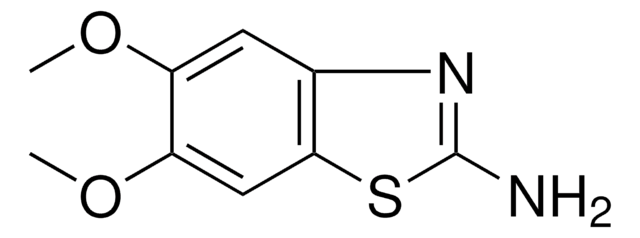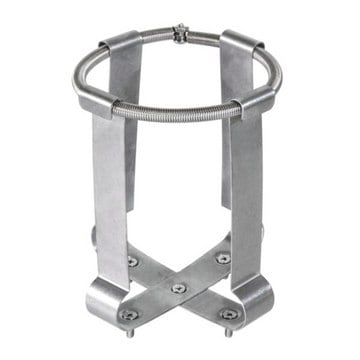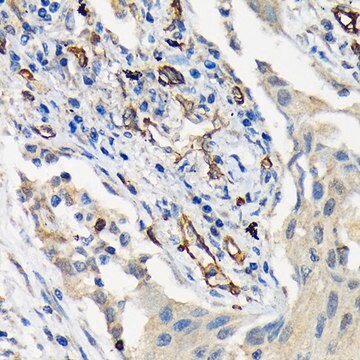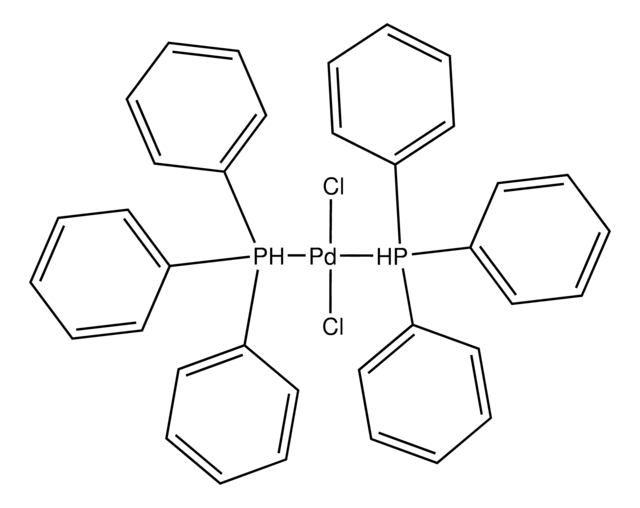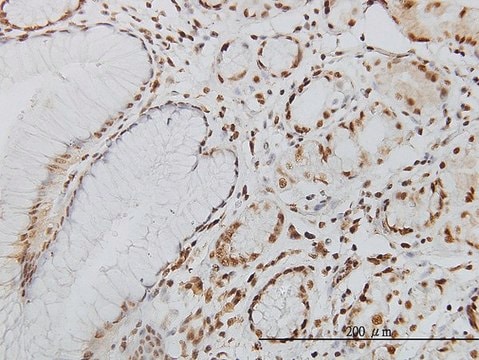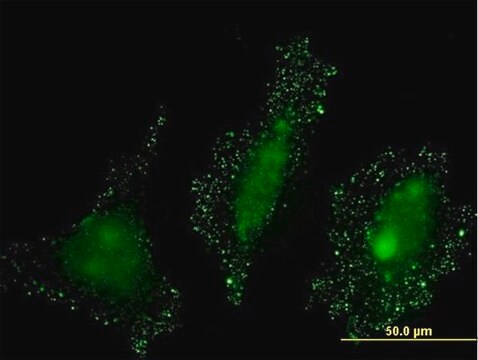MABT496
Anti-PKN2, clone 1D1 Antibody
ascites fluid, clone 1D1, from mouse
Synonym(s):
Serine/threonine-protein kinase N2, Protein kinase C-like 2, Protein-kinase C-related kinase 2, PKN2, PRK2, PRKCL2
About This Item
Recommended Products
biological source
mouse
Quality Level
antibody form
ascites fluid
antibody product type
primary antibodies
clone
1D1, monoclonal
species reactivity
mouse, rat, monkey, human
technique(s)
ELISA: suitable
flow cytometry: suitable
immunohistochemistry: suitable
western blot: suitable
UniProt accession no.
shipped in
wet ice
target post-translational modification
unmodified
Gene Information
human ... PKN2(5586)
Related Categories
General description
Immunogen
Application
Immunohistochemistry Analysis: A 1;200-1,000 dilution from a representative lot detected PKN2 in prostate and lung cancer tissues.
Flow Cytometry Analysis: A 1:200-400 dilution from a representative lot detected PKN2 in NIH/3T3 cells.
Cell Structure
Cytoskeleton
Quality
Western Blotting Analysis: A 1:500-2,000 dilution of this antibody detected PKN2 in PC-12, Cos7, K562, Jurkat, HeLa, A431, C6, NIH/3T3 and HEK293 cell lysates.
Target description
Physical form
Storage and Stability
Handling Recommendations: Upon receipt and prior to removing the cap, centrifuge the vial and gently mix the solution. Aliquot into microcentrifuge tubes and store at -20°C. Avoid repeated freeze/thaw cycles, which may damage IgG and affect product performance.
Other Notes
Disclaimer
Not finding the right product?
Try our Product Selector Tool.
Storage Class Code
12 - Non Combustible Liquids
WGK
nwg
Flash Point(F)
Not applicable
Flash Point(C)
Not applicable
Certificates of Analysis (COA)
Search for Certificates of Analysis (COA) by entering the products Lot/Batch Number. Lot and Batch Numbers can be found on a product’s label following the words ‘Lot’ or ‘Batch’.
Already Own This Product?
Find documentation for the products that you have recently purchased in the Document Library.
Our team of scientists has experience in all areas of research including Life Science, Material Science, Chemical Synthesis, Chromatography, Analytical and many others.
Contact Technical Service